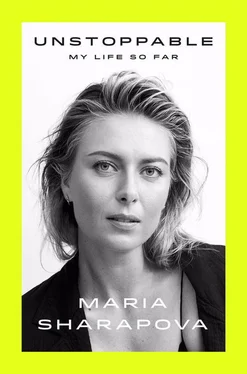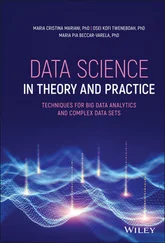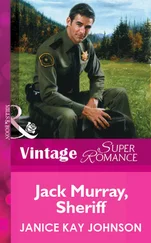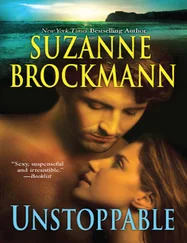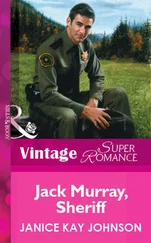I came into the 2012 French Open as a strong favorite. I really felt like this was the moment, this was the time. It was going to happen. That final of the Australian Open? That was just me burning off whatever I had to burn off. I was healthy and playing well when I reached Paris. They told me that if I won, I’d probably get back that number one ranking. And there was this small detail: the French Open was the only Grand Slam I had never won. That would be absolutely huge! Getting them all—that really was something to aspire to; it was a marker, special and rare. It put you in the history books. It’s called a career Grand Slam. Only nine women had ever done it. Three Americans who dominated in the 1950s: Maureen Connolly Brinker, Doris Hart, and Shirley Fry Irvin; Margaret Court, an Australian who won her Grand Slams in the 1960s; and the others are Billie Jean King, Chris Evert, Martina Navratilova, Steffi Graf, and Serena Williams. In other words, I went into the tournament in exactly the right frame of mind.
I’d had trouble on clay in the past. It’s a surface that suits mobility and patience, neither of which had been my strength. At one point, following a match I really struggled in, I told a newspaper reporter that, playing on clay, I felt like a cow on ice. But I’d been working at it. And working at it. In fact, the clay season that led to the French had been one of the best I’d ever played. I had won twelve clay matches coming into the French Open, winning the titles in Stuttgart, Germany, and in Rome. I’d even taken some French classes. Speaking French might not help me win, but it wouldn’t hurt if you found yourself holding a trophy on the podium with a microphone in your hand. Nearly four years had gone by since my shoulder surgery. It had taken me eleven Grand Slams to get back to a final, at Wimbledon, the year before. And I was still waiting for the big win.
I dropped only five games in the first three matches of the French that year. But the fourth round was tougher. I took the first set 6–4, and Klára Koukalová, a Czech player, won the second set in a tiebreaker. But I took the third set 6–2.
The score sheet might not show it, but my most difficult match of that tournament was probably the semifinal against Petra Kvitová. She’d played some of her best tennis against me in previous Grand Slams. Plus—the weather. It was one of those late spring days when you’d love to be walking down a Paris boulevard in a big floppy hat, looking in store windows, stopping for a coffee and croissants, but it was hell on the red clay, because of the wind, the bluster. It can hold up even the best shot, push it off course. It can wreak all kinds of havoc. So for me, in many ways, that match was really the final. If I got past this round, I knew I could take it all. I got it done in straight sets, 6–3, 6–3. The bonus for winning that match? I regained my number one ranking.
I played Sara Errani in the final. If you’re playing Errani in a Grand Slam final, you could say it’s a good draw (especially when you see her eating a Mars chocolate bar an hour before the match). But that’s dangerous thinking. Everyone knows how an athlete competes as an underdog. Errani is an Italian player, around my age. She was just breaking through to the first serious success of her career, coming to be known for her finesse. But what can I tell you? It was just my day. I was wearing a black Nike dress and a black visor. Every shot I hit landed precisely, every target I marked, I found. Every now and then, it happens like that. It was overcast, with dark clouds rolling in, but that had nothing to do with me. All I had to do was keep things simple. Simple, yet smart. The first set seemed like it was over a moment after it began, 6–3. I was deep into the second, rolling downhill. Then, just like that, I was all alone out there, wind riffling my hair, serving for the tournament. Errani returned my serve and off we went, chasing down that last great point, back and forth, back and forth. I finally got the ball just where I wanted it, deep in the corner, just inside the line. She got to it, but could only manage a weak lollipop lob. I waited and waited for the bounce. For a long moment, the ball just seemed to hang there. And the stadium was quiet—so quiet. It was the sort of quiet only a crowd can make. Then I brought back my arm and struck the ball with a two-handed backhand, the shot carrying my racket above my shoulder and toward the sky. Errani ran and ran but did not get it back over the net. The crowd exploded into cheers. I dropped to my knees and put my face in my hands. Then I looked for my father. And looked and looked. It was the first time he had not been there at a Grand Slam victory, watching from the seats. It felt strange not finding him, like something crucial was missing. It felt wonderful, too. Then I went to the net and shook hands with Errani. Then I smiled. Then I jumped up and down. Then I turned circles in the center of the court, arms raised. I realized what this championship meant to me the instant it was over.
It was a perfect capper to my career. At the beginning, so much came so fast for me. I won Wimbledon when I was just seventeen years old. I became a star. Sponsors picked me up. I was the center of ad campaigns and jealousy. I won the U.S. Open in a black dress at night. And then, one afternoon, when it seemed like nothing could go wrong, everything did—the tendon in my shoulder snapped and suddenly a sport that I loved meant defeat and pain. My shoulder was cut open and repaired, but the recovery was long and difficult. For stretches, it seemed like I’d forgotten how to play the game, like I’d never get back what once came so naturally. I was lost. I wandered. Then slowly, bit by bit, and by working like I’d never worked before in my life, I began to find my way. I learned to play the old game in a new way. I realized there’s more than one way to win a match. And now, eight years after I took that first Grand Slam at Wimbledon, I’d made it all the way back. I was in the same place, in the same world, but I was not the same player and not the same person. I saw it all again with new eyes and truly appreciated it for the first time. It gave people a new way to understand my story. It’s exciting when a kid wins on the biggest stage. That’s new life, that’s spring. But how much sweeter when a player who once had everything loses it all, and then, miraculously, gets it all back.
That summer, I played in the Olympics. London, 2012.
People often ask me: Are you Russian or American? I could be American and speak English like an American and get all the references and all the jokes because I really grew up in Florida and was raised by my parents and my coaches but also by movies and television, by the scrappy counterpuncher and the evil bullies in The Karate Kid and by the all-knowing wisdom of Mike and Carol in The Brady Bunch. My humor is less Gogol than Seinfeld, and my smarts are less Dostoyevsky than Full House. But I never stopped and never will stop feeling Russian. When I’m down a break point deep in the third set of a match, I am Russian. But more—it’s deep in my soul, in the history and the heritage of my family. I feel it every time I go back to Gomel in Belarus to see my grandparents, or to Sochi to see old friends, or to Moscow to play in tournaments. It’s the language, the sound of the people on the street, not just the voices and the words but the mannerisms, the mentality, and the assumptions. It can be hard to define home, especially when you have led a life as crazy and all over the place as mine, but you know it when you’re there. It’s where you feel most grounded, most understood, where you don’t have to explain. It’s where they get you. I am a Russian. I have always known that, every minute of every day. Which is why the request, or the offer, or whatever you want to call it, meant so much to me.
Читать дальше
